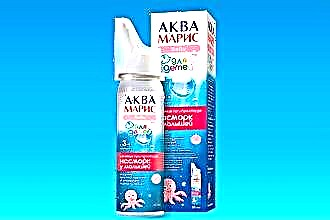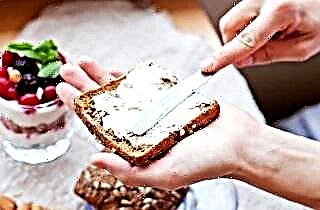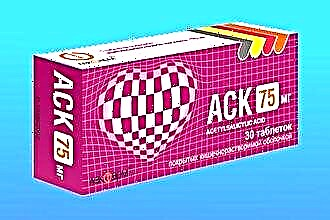How long can a runny nose last? Rhinitis often goes away after 5-7 days, but in some cases, rhinorrhea persists for months or even years. It all depends on the reason that provoked the appearance of a cold, the strength of the immune defense, as well as the presence of chronic diseases in humans. Folk remedies for chronic rhinitis in combination with drug therapy can completely get rid of rhinitis.
 What are the causes of a runny nose?
What are the causes of a runny nose?
- allergic reactions to food, household chemicals, cosmetics, fluff, wool, perfume or chemicals;
- vasomotor rhinitis develops as a result of dysregulation of the vascular wall tone, due to which the blood vessels lose their ability to respond to irritating factors;
- long-term use of nasal agents with a vasoconstrictor effect. The blood vessels are in a spasmodic state, which is why the mucous membrane is not moistened, dries up and is often injured. A person notices the appearance of dry crusts with bloody streaks, which indicates damage to the blood vessels;
- chronic infections in the nasopharynx, which predisposes the persistence of the inflammatory process;
- curvature of the septum, adenoids disrupt normal breathing and ventilation of the nasal sinuses.
Chronic rhinitis is also facilitated by severe comorbidities (autoimmune diseases, diabetes, cancer), which significantly reduces the body's immune defenses.
Traditional medicine recipes help enhance the healing effect of pharmaceuticals and accelerate recovery. To correctly determine the tactics of treatment and quickly cope with the disease, you need to know its cause. For example, in the case of allergic rhinitis, it is enough to identify the type of allergen and stop contact with it. If we are talking about a vasomotor rhinitis, it may be necessary to consult narrow specialists to identify the cause of a violation of the regulation of vascular tone.
Despite the minimum number of adverse reactions when taking folk remedies, there is still a risk of developing allergies to the constituent drugs.
Herbal remedy for the common cold
Most of the herbs used have not only local but also general effects. As a result, we get rid of rhinitis and strengthen the immune system. Treatment of chronic rhinitis with folk remedies involves the use of such recipes:
- currant-based medicines. Currant fruits can be used to make compote. Drinking plenty of fluids can reduce the viscosity of nasal discharge and reduce the severity of intoxication. For cooking, it is enough to pour the berries (200 g) with water (900 ml), put on the fire and boil. After a quarter of an hour, you need to remove the container from the heat and suck a little. If there are currant twigs at home, you can pour them with a liter of boiling water, boil for 4 hours and take 230 ml of a decoction before going to bed. To sweeten the medicine, it is recommended to add a little sugar;
- to obtain a powerful anti-inflammatory, astringent and antiseptic effect, you need to use marshmallow leaves, as well as eucalyptus. For cooking, you need plants in a ratio of 2: 1, which should be poured with boiling water in a volume of 260 ml. When the infusion has cooled, it is necessary to filter it and take it every 3 hours;
- to prepare a medicinal product, you will need 1 g of rue, 10 g of a medicinal letter each, as well as a hoofed root. All components are crushed, after which inhalation is carried out;
- infusion of calendula is used to wash the nasal cavities. To prepare the infusion, you need to pour 15 g of the plant with hot water with a volume of 300 ml. It is necessary to wait for the medicine to cool down and start the procedure;
- 4 drops of aloe juice should be added to melted honey with a volume of 3 ml. Dripping three drops into each nasal passage three times a day.
Healthy food
Everyone knows that fresh vegetables and fruits are recommended to be consumed not only during periods of illness, but added to the daily diet. They are also beneficial when used topically to treat rhinitis:
- beet. For rinsing the nasal cavities, you can use beet juice, which is diluted 1: 1 with water. To prepare the broth, it is enough to wash, peel the vegetable, grind it with a grater and squeeze the juice;
- horseradish can be used for inhalation and preparation of medicines for oral administration. Horseradish needs to be cleaned, chopped and poured into a container. During the day, you should open a can of horseradish and inhale the vapors (5-7 breaths), and then put it in the refrigerator for storage. Another recipe involves preparing a medicine with lemon. 110 g of horseradish chopped with a grater is mixed with the juice of three lemons until a thick consistency is obtained. It is recommended to take 2 g in the morning.
Onions can be used in a variety of recipes. Thanks to its powerful antimicrobial action, rhinitis can be cured in a short time:
 onions should be peeled, chopped and wrapped in a handkerchief. The vapors must be inhaled for 15 minutes. To enhance the healing effect, onions can be mixed with chopped cloves of garlic (3-4). Inhalations are repeated three times a day;
onions should be peeled, chopped and wrapped in a handkerchief. The vapors must be inhaled for 15 minutes. To enhance the healing effect, onions can be mixed with chopped cloves of garlic (3-4). Inhalations are repeated three times a day;- peeled onions must be divided into layers and removed. These films should be applied to the nasal mucosa for 20 minutes. The procedure is repeated every 2 hours;
- a few drops of onion juice can be added to aloe juice (5 ml). Drip nose in three drops;
- in onion juice, you can moisten cotton swabs and insert into the nasal passages for 5-10 minutes twice a day.
Anti-rhinitis oil
Oil-based products are especially useful for atrophic rhinitis.
Each type of oil has certain healing properties, which makes it possible to find the most effective remedy to combat nasal congestion. The enveloping effect, which is inherent in all types of oils, allows you to moisturize the mucous membrane, protect it from injury, irritation and activate the regeneration process. You can eliminate chronic rhinitis with oil-based folk remedies using the following recipes:
- 10 ml of carotene, 10 drops of peach, eucalyptus oil must be mixed. Having received a homogeneous consistency, you should moisten a cotton swab in the mixture and insert into the nasal passage for a quarter of an hour;
- 5 g of lanolin must be combined with 5 g of petroleum jelly, add one milliliter of rose oil, as well as carotene. The resulting liquid is used to treat the mucous membrane of the nasal cavities with a gauze pad;
- olive oil 50 ml must be mixed with carrot juice (50 ml) and a few drops of garlic juice. The medicine is dosed in drops, it is recommended to apply two drops in each nasal passage three times a day for a long course;
- butter with a volume of 500 g should be melted, boiled for half an hour over a fire. The resulting mass must be filtered through cheesecloth (the part remaining in the cheesecloth should be discarded). The medicine is stored in the refrigerator, twice a day it is used to treat the nasal cavities, preheated in a water bath;
- vegetable oil with a volume of 30 ml should be heated in a water bath for about half an hour, then add a few chopped garlic cloves, cool the mixture a little and lubricate the nasal mucosa with it with a cotton swab.
Popular remedies
How to treat chronic rhinitis according to popular recommendations? The development of chronic rhinitis is due to several factors:
- improper treatment of the acute stage of the common cold;
- weak immunity;
- the presence of a provoking factor (allergen, adenoids, industrial harmful factor);
- the presence of a chronic infection in the nasopharynx, ear, or pharynx.
As a result, the acute inflammatory process subsides, but remains in an inactive state in the mucous membrane of the nasal cavities, due to which a chronic rhinitis develops. Treatment with folk remedies helps to get rid of nasal congestion, nasal voice, rhinorrhea and pain in the paranasal zone. For this, the following medications can be used:
 for rinsing the nose, you can use a saline solution prepared at home or purchased at a pharmacy (Dolphin, Aqua Maris). For preparation, you need to dissolve 5 g of salt in warm water with a volume of 240 ml and add 2 drops of iodine;
for rinsing the nose, you can use a saline solution prepared at home or purchased at a pharmacy (Dolphin, Aqua Maris). For preparation, you need to dissolve 5 g of salt in warm water with a volume of 240 ml and add 2 drops of iodine;- herbal infusions can be used to rinse the nose to reduce inflammation and cleanse the mucous membrane of dust and mucus with toxins. For this, it is allowed to use calendula, oak bark, chamomile or sage. It is enough to pour 15 g of grass with boiling water of 270 ml and leave for 15 minutes.
Rhinitis procedures
Any thermal procedures (inhalations, baths, compresses) are prohibited in case of bacterial inflammation and hyperthermia above 37.5 degrees.
Home therapy should include warming and massage treatments. How to treat a chronic runny nose with thermal treatments:
- mustard powder can be poured into socks at night;
- a few tablespoons of mustard can be added to the warm hot water prepared for the foot bath. When the body warms up, you need to put on warm socks and lie under the covers;
- to warm up, you need to sit in a bathtub with warm water, then lie under the covers and "sweat". To enhance the effect, it is recommended to drink hot tea with raspberries, currants or honey. The procedure is especially useful in the evening, before bed;
- on the area of the wings of the nose and paranasal region, you can attach a bag of heated salt or a cake of rye flour with the addition of horseradish. The strength of the heat must be controlled independently so as not to burn the skin.
Another way to treat rhinitis is through massage. Its action allows:
- activate local blood flow, ensure the delivery of anti-inflammatory components;
- reduce swelling of the mucous membrane and nasal congestion;
- accelerate the regeneration of damaged tissues;
- reduce the severity of secretion.
To fight rhinorrhea, you need to act on certain points during the massage. The skin of the fingers should be warm, it is necessary to control the force of pressing on the points so that the massage does not cause pain. So, the location of the points:
 eyebrow zone at the intersection with the bridge of the nose;
eyebrow zone at the intersection with the bridge of the nose;- near the wings of the nose;
- above the upper lip in the projection of the edges of the wings of the nose;
- near the far corner of the eye at a distance of 1 centimeter.
Inhalation can be done with essential oils or potatoes:
- 5-6 potatoes must be boiled and the water drained. After cooling the potatoes a little, you can start inhalation. The inhalation should be carried out through the nose;
- add 3-4 drops of eucalyptus or pine oil to a container with hot water. Inhalation takes 5-7 minutes.
Long-term preservation of the inflammatory process in the nasopharynx is fraught with the development of complications such as otitis media, sinusitis, tonsillitis or adenoiditis.
To get the maximum effect from procedures and folk remedies, you need to adhere to general recommendations:
- plentiful drink (compotes, fruit drinks, tea, herbal teas with chamomile, linden, mint). If desired, you can drink plain mineral water without gas. Adequate intake of fluid into the body makes it possible to remove toxins and improve general condition;
- proper nutrition (fruits, vegetables, herbs, chicken broth);
- regular ventilation of the room, air humidification, wet cleaning;
- contact with sick people should be avoided. If communication cannot be avoided, a disposable mask must be used;
- taking vitamins.
Remember that clean air and sun warming will get rid of a cold in the shortest possible time. To identify the cause of the disease, it may be necessary to consult an otolaryngologist, neurologist, endocrinologist, or maxillofacial surgeon.

 onions should be peeled, chopped and wrapped in a handkerchief. The vapors must be inhaled for 15 minutes. To enhance the healing effect, onions can be mixed with chopped cloves of garlic (3-4). Inhalations are repeated three times a day;
onions should be peeled, chopped and wrapped in a handkerchief. The vapors must be inhaled for 15 minutes. To enhance the healing effect, onions can be mixed with chopped cloves of garlic (3-4). Inhalations are repeated three times a day; for rinsing the nose, you can use a saline solution prepared at home or purchased at a pharmacy (Dolphin, Aqua Maris). For preparation, you need to dissolve 5 g of salt in warm water with a volume of 240 ml and add 2 drops of iodine;
for rinsing the nose, you can use a saline solution prepared at home or purchased at a pharmacy (Dolphin, Aqua Maris). For preparation, you need to dissolve 5 g of salt in warm water with a volume of 240 ml and add 2 drops of iodine; eyebrow zone at the intersection with the bridge of the nose;
eyebrow zone at the intersection with the bridge of the nose;

